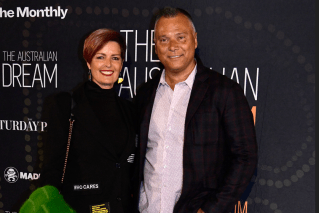Have you found ‘The One’? How mindsets about destiny affect our romantic relationships

Ditch the ‘destiny’ mindset – a ‘relationship growth’ one is likely to deliver better romantic partnerships. Photo: Getty
If you listen to any number of love songs, dating “experts”, or plunge head first into a romance novel, you’re likely to think it’s in our destiny to find that special someone – your soulmate.
But how do you know if you’ve found “The One”? Will the birds sing? Will you see fireworks or a shooting star?
And for those who are yet to find “The One”, should you keep searching, or is it a misguided quest?
Research into the science of relationships spanning the past two decades shows maintaining a “destiny” mindset – that we are all meant to find that ideal person who completes us in every way – can be problematic for our love lives.
Destiny mindsets affect how we evaluate romantic partners, as well as how we maintain lasting relationships.
For some, this mindset can even include a mental picture as to what that person should look like.
What are the costs of a mindset?
A destiny mindset may make a person less open to developing a relationship with someone who possesses many excellent qualities, but does not match an individual’s mental picture of “the one”.
A person who holds a destiny mindset may be more likely to focus on the potential faults or inadequacies of another, for example, rather than centre on their good qualities.

Potential love interests may not measure up. Photo: Stanley Dai
On the other hand, a person may not pursue a potential love interest in the hope that something better comes along that matches their vision of destiny. By maintaining a destiny mindset, they may reject real opportunities at finding love.
For those in an existing relationship, maintaining a destiny mindset can be associated with relationship satisfaction, if the current relationship closely (if not perfectly) matches one’s idea.
But if the relationship is not in line with one’s vision of destiny, or if the relationship is evaluated as no longer matching one’s destiny, dissatisfaction can ensue.
Research suggests people who hold a destiny mindset don’t work as hard at their relationships because they have a very fixed view of their partner and relationship.
They tend to accept things the way they are – either a relationship is meant to be or it is not – rather than putting in time and effort to make relationships things work and deal with relationship problems.
Is there a better alternative?
In contrast to a destiny mindset, some people hold a “growth relationship” mindset.
This includes beliefs and expectations that a partner and relationship has the capacity to develop and change over time, and that problems or challenges can be overcome.
Research to date suggests a growth mindset is associated with more effective ways of coping with relationship challenges and using more problem-solving to deal with relationship difficulties.

Relationships have their highs and lows and take work to maintain. Photo: Toa Heftiba
People with a growth mindset experience various positives such as greater relationship and sexual satisfaction and have a better, more constructive way of handling conflict. A growth mindset has also been found to reduce the risk of a relationship ending.
Can you have both?
Some people recount meeting their partner and knowing they were “The One”. But when describing how their relationship has progressed over time, it’s clear they put time and effort into it and work on problems when they arise.
These people may hold beliefs about destiny, but overall, hold more of a growth mindset about their relationship.
These couples often acknowledge their partner and relationship has changed, for example, and often note they’ve helped each other develop and grow over time.
So if you work hard at your relationship, and you and your partner help one another develop and grow, you may get to know each other so well that you feel as if you share one soul. Maybe that’s what is meant by a true soulmate.
Gery Karantzas is associate professor in Social Psychology and Relationship Science at Deakin University.
This article is republished from The Conversation under a Creative Commons licence. Read the original article.








